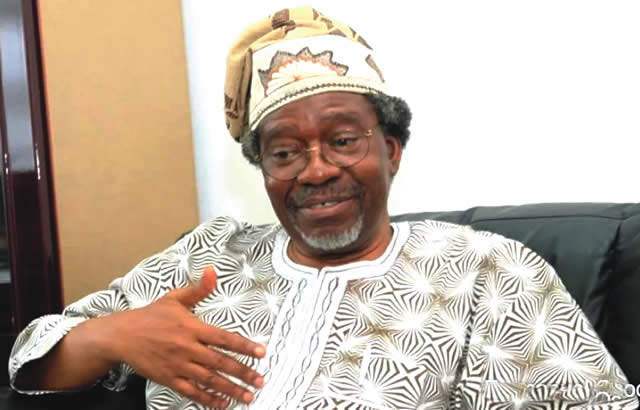Paragraph 1: The Imperative for Restructuring Nigeria’s Federal System
Professor Akin Oyebode, the Pro-Chancellor of Ekiti State University, has issued a compelling call for a fundamental restructuring of Nigeria’s federal system. He argues that the current structure is a distorted caricature of true federalism and advocates for a streamlined two-tier system comprising only the federal and state governments. Central to his argument is the removal of the Federal Government’s authority over local government creation, proposing that this power be exclusively vested in the state governments. This, he believes, is essential for ensuring the autonomy and democratic functionality of local governance, which is currently severely hampered by the existing arrangement.
Paragraph 2: Local Governments: Disempowered and Distant from the People
Professor Oyebode laments the current state of local governments in Nigeria, describing their survival and relevance as questionable. He asserts that the existing configuration of local governments is unhealthy and almost indefensible. He criticizes the lack of genuine autonomy and democratic processes at the local level, emphasizing that despite being the closest level of government to the people, they are effectively marginalized and rendered ineffective. This disconnect, he argues, undermines the very purpose of local governance, which is to bring government closer to the citizenry and address their immediate needs.
Paragraph 3: A Case for State Control and Two-Tier Federalism
Professor Oyebode proposes two potential solutions to address the dysfunctionality of local governance in Nigeria. The first is to completely abolish the local government system, leaving only the federal and state governments, a model adopted by many successful federations globally. Under this system, states would have the autonomy to create as many local administrative units as they deem necessary, tailored to their specific needs and circumstances. The second option is to retain local governments but transfer the power of their creation entirely to the states. This, he believes, would ensure that local governments become more responsive to the unique needs and priorities of their respective states.
Paragraph 4: The Flaws of the Current Revenue Allocation System
The existing revenue allocation system, according to Professor Oyebode, further exacerbates the problems of local governance. He points out that only state governments participate in the monthly Federation Account Allocation Committee (FAAC) meetings, effectively excluding local governments from the decision-making process. This means local governments are at the mercy of state governments and receive allocations by fiat, rather than through a negotiated and equitable process. This lack of representation diminishes their financial autonomy and undermines their ability to effectively deliver services to the people.
Paragraph 5: The Need for Devolution and Balanced Local Government Creation
Professor Oyebode emphasizes the need for increased autonomy for state governments within the federal system. He calls for a reconsideration of the division of powers as enshrined in the constitution, advocating for greater devolution of powers to the states. This enhanced autonomy, he believes, would allow states to empower local governments, making them masters of their own destiny. He also criticizes the historical imbalance in the creation of local governments, which has favored the northern part of the country at the expense of the south, leading to an inequitable distribution of resources and representation.
Paragraph 6: Addressing Historical Imbalances and Unrealistic Local Governments
Professor Oyebode highlights the stark disparity in the number of local governments between states like Lagos, with 20 constitutionally recognized local governments, and states like Jigawa and Kano, with significantly higher numbers. He argues that this disparity, stemming from decisions made in 1976, is unconscionable and reflects a historical bias that needs to be addressed. He also points to the case of Lagos State, which created additional local council development areas (LCDAs) beyond the constitutionally recognized ones. These LCDAs, while intended to improve local governance, have remained largely ineffective due to the Federal Government’s withholding of their allocations, demonstrating the limitations of unilateral action by states in the face of federal control. This emphasizes the need for a comprehensive review of the entire system of local government creation and funding to ensure equity and effectiveness.














